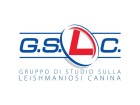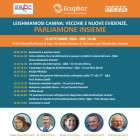In February 2016, the website www.gruppoleishmania.org was adapted to comply with the Privacy and Cookies Policy (Law No. 196/03).
The CLWG Scientific Meeting in 2016 was held on 3-4 November at S. Georges Bay, Malta. In this meeting, CLWG has devoted much of the meeting to some scientific study projects that actively involve some members of the group, particularly:
- Nasal planum dog's dermatitis: histopathological and immune-pathological diagnostic criteria to differentiate erythematosus discoid lupus from leishmaniasis-induced skin lesions, coordinated by Dr. Fondati. The work draft is almost complete and will be submitted to the journal of Veterinary Dermatology.
- Retrospective histopathological study for Leishmania in cats with ulcerative facial skin and neck dermatitis, coordinated by Dr. Fondati. This research is an ongoing project and in the 2017 we expect to discuss the results.
- Evaluation of clinical and laboratory remission times in dogs with proteinuria associated with leishmaniasis under different therapeutic-management protocols, coordinated by Dr. Zatelli and with the collaboration of Prof. Paltrinieri and Lubas and Dr. Gradoni, Roura and Zini. Additional supplementation of unsaturated fatty acid products together with the administration of specific foods for kidney disease was discussed in the subjects involved in the study
The project report on "Prevention of transmission of leishmaniasis infectious amastigots from blood donor dogs and arrangements to ensure the proper management of blood donor dogs against leishmaniasis" was presented, coordinated by Prof. Lubas. Following the presentation of the abstracts in 2014 at the congress of the European Society of Veterinary Clinical Pathology in Milan, an article was produced concerning the clinical-pathological and serological modification of blood donor dogs that were immunized with Canileish® and iyt was published in Veterinary Medicine International. See also the download section of this website, article no. 51.
The evaluation of some of the study areas that are being carried out by some members of the group have continued:
- Comparative analysis of the characteristics of all topical compounds for the prevention of leishmaniasis in Italy (project followed by Fondati, Maroli and Gradoni). It was proposed to widen the research also to other Mediterranean countries such as Spain, France and Greece.
- Developing a questionnaire to be sent to veterinarians in Italy to know what are the advices the practitioners provides to the owners about the prevention of leishmaniasis. The products included in the survey are both topical products (choice of type, recommendation for its use, possible side effects) and the use of systemic products such as vaccine or domperidone (recommendation for its use, possible side effects), (project involving all CLWG members).
- Development of guidelines to establish investigations necessary to identify subjects to be vaccinated with CaniLeish® (project by Roura, Gradoni and Lubas). Any paper has been published at the moment, and there is only one post-marketing report on the experimental field of CaniLeish® vaccine (phase III). See also download section of this website, article no. 48.
- Development of guidelines for the use of allopurinol in prolonged treatments with possible adverse effects assessment (project by Zini and Roura). There are currently any consistent scientific contributions to this topic except for a single paper by Torres et al, 2016. See also download section of this website, article no. 52.
- Development and re-evaluation of some algorithms for the diagnosis of leishmaniasis also in the view of what has been published so far and with the last contribution prepared by some CLWG members. See also download section of this website, article no. 53.
- The possible association between leishmaniasis and neoplastic diseases and/or immunosuppressive treatments and/or antineoplastic treatments was discussed. Clinical evidence in this regard is scarce and fragmentary.
Finally, a latest paper of Prof. Lubas and coworkers was presented (with the help of Zini's review) which is discussing a clinical case of a multi-vaccinated dog with CaniLeish® who contracted a classical leishmaniasis. See also download section of this website, article no. 54.


